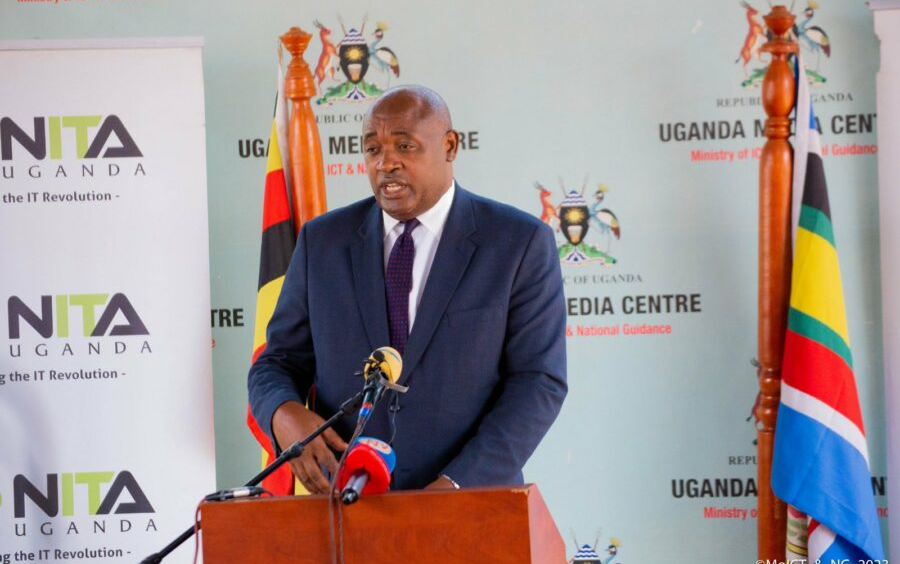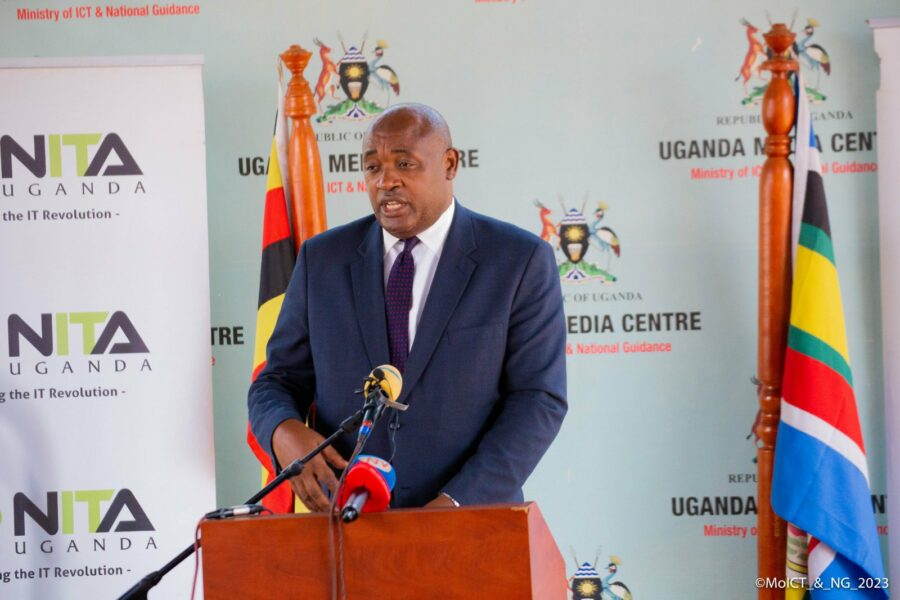Bolstering Digital Inclusivity: NITA-U Cuts Internet Bandwidth Cost by Half

In a significant move set to revolutionize the Information and Communications Technology (ICT) landscape in Uganda, the National Information Technology Authority Uganda (NITA-U) has announced a 50% reduction in the cost of Internet bandwidth. The cost has been slashed from $70 (about Shs254,000) to $35 (about Shs127,000) per megabyte per second per month.

Photo Dr Chris Baryomunsi, the Minister for ICT addressing journalists at the Uganda Media Centre.
The announcement was made at a press conference at the Uganda Media Centre on Tuesday, 01 August 2023, by NITA-U’s Executive Director, Dr Hatwib Mugasa, and Dr Chris Baryomunsi, the Minister for ICT and National Guidance. The updated prices take effect immediately and aim to reduce the cost of doing business while promoting the growth of ICT in the country.
For years, NITA-U has been striving to consistently decrease the cost of internet bandwidth in Uganda, particularly for government institutions that provide onward services to ordinary citizens and the private sector. The organization sees this move as a milestone that will not only trim government expenditure but also spur the adoption of e-Government Services.
The reduction in bandwidth cost is expected to attract more internet users and deepen digitization in the country. With the cost of internet becoming more affordable, a larger section of the population can now access various online services, thus fostering digital inclusivity.

Photo Reducing internet cost will attract more internet users and ultimately deepen digitization.
Dr Mugasa stressed the significant impact of this decision on the growth of e-Government services in the country. E-Government services can greatly enhance efficiency in public service delivery, promote transparency, and increase citizen participation in governance. By making the internet more affordable, NITA-U aims to expedite the transition towards a digital economy.
The bandwidth cost reduction is poised to have a domino effect on the country’s economy as well. As businesses take advantage of the lowered costs, there is likely to be an increase in digital entrepreneurship and a surge in online services, ultimately contributing to the economic growth of Uganda.
In conclusion, NITA-U’s decision to halve the cost of internet bandwidth is an ambitious stride towards a digitally inclusive Uganda. This move paves the way for broader ICT development, increased uptake of e-Government services, and a vibrant digital economy. It reflects Uganda’s commitment to harnessing the potential of digital technology for national development.







